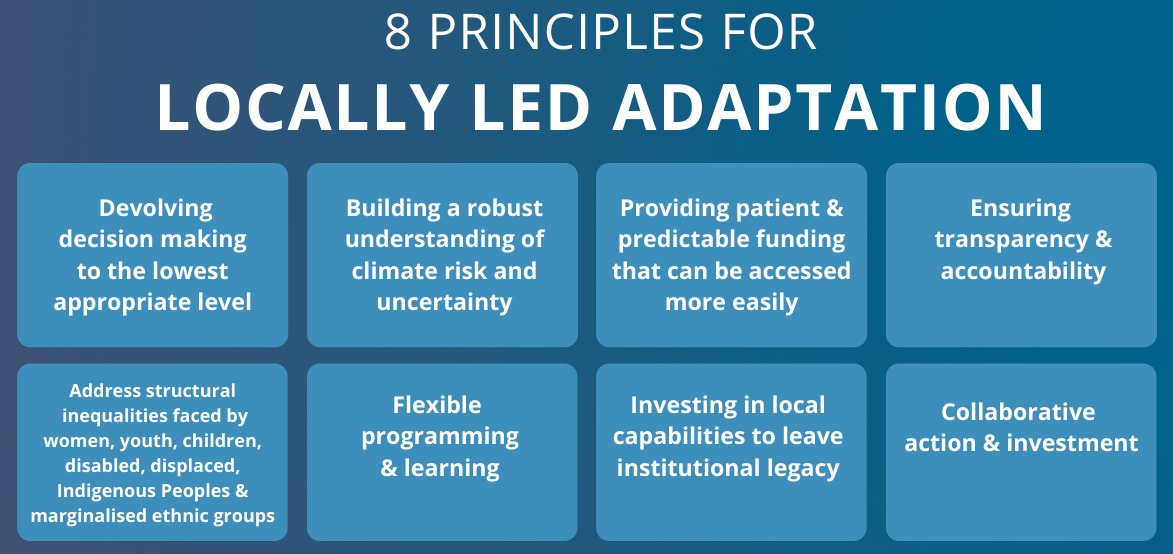In recent years, locally led adaptation has been widely recognized as an effective, efficient and equitable means of delivering climate adaptation action in Africa. However, emerging locally led adaptation practices indicate that vulnerable small-scale farmers are not often prioritized for adaptation interventions, due to a lack of frameworks and indicators to capture and report their relevance and impacts. Further, locally led adaptations are not always adequately informed by a diversity of voices, particularly those of women, youth, the elderly and a variety of income categories. This gap impedes equitable adaptation planning and financing and exacerbates the vulnerabilities of already vulnerable small-scale farmers.
This project responds to this challenge by co-producing adaptation metrics with local stakeholders, including vulnerable small-scale farmers, in Kenya and Benin. The project will identify or develop the priority adaptation needs and aspirations of vulnerable groups, approaches that can be used to capture these needs, and the relevant metrics and adaptation interventions. These locally led adaptation metrics will be aligned with national processes so that they can be integrated into national adaptation planning, global adaptation assessment and financial frameworks.
Co-production and citizen science will be used as co-learning tools to strengthen local capacities to assess and report inclusive locally led adaptation. Metrics developed in Kenya will be tested in Benin, and lessons learned will be shared and their uptake supported in other African countries. Project outputs will include peer-reviewed papers on adaptation measurements, a platform for tracking locally developed metrics, policy briefs, learning tools and case studies on enablers of inclusive locally led adaptation and gender-responsive metrics.
The Canada’ IDRC funded Locally Led Adaptation Metrics for Africa (LAMA) is aims to use the intersectionality approach to co-produce with communities’ indicators on locally led adaptation to support planning and financing of locally led climate actions in Kenya and Benin in Africa. The LAMA Project aims to support measurement and reporting on the relevance and effectiveness of locally led adaptation as well as strengthening the inclusion of local adaptation priorities in adaptation interventions, especially those of marginalized groups. This will enable alignment of LLAs to the priorities of the different vulnerable and marginalised groups including the small-scale farmer social groups. The LAMA project is designed to strengthen the inclusion of clearer local adaptation priorities (and marginalised voices) in adaptation interventions by linking lessons to the county and national adaptation plans and Nationally Determined Contributions (NDCs). The project has so far completed the following:
Literature review on current adaptation indicators-being applied to assess the effectiveness of adaptation interventions, their focus, gaps and opportunities. Multistakeholder meetings in Kenya- that has enabled the understanding of adaptation gaps, priorities in Kenya and Benin and linked the project to broader adaptation activities such as the Financing Locally Led Climate Action (FLOCCA) initiative supported by the world bank, the adaptation fund, and broader experiences from other countries Benin, Ghana, Zambia, Uganda and Senegal. A workplan between the project, the National Treasury Kenya and world Bank has been developed to jointly build indicators for developing bankable projects that can effectively address the needs of the communities in Kenya- with a focus on the Lake Basin Economic Block (LREB) Policy linkages- The project team have also been incorporated into the National Adaptation task force for Kenya and the Africa Group of Negotiators Expert Group on Adaptation, currently finalising the draft report on Status of Adaptation in Africa Report 2023. These experiences provide useful background, research and engagement opportunities for the current assignment. Adaptation convening platform- the Africa Platform for Adaptation Metrics- as part of impact vehicle for the LAMA project, the team has established the Adaptation Metrics for Africa Platform – APAM with the aim of supporting learnings across adaptation projects in Africa and building key lessons to inform policy.

